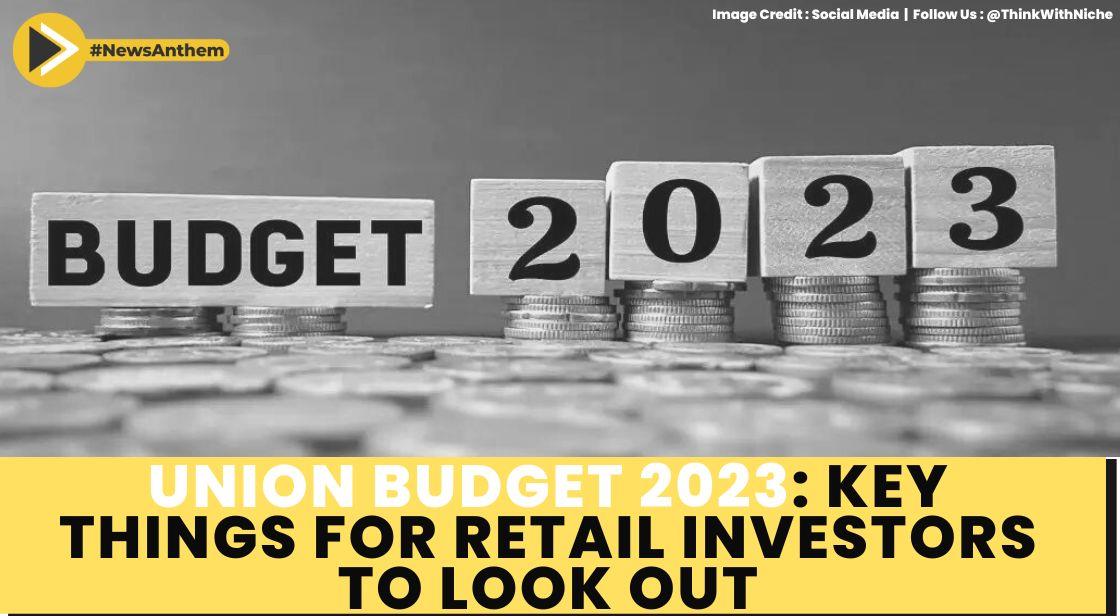Union Budget 2023: Key Things For Retail Investors To Look Out

News Synopsis
On February 1, 2023, Union Budget for the Financial Year 2023–2024 (FY24) will be presented by Finance Minister Nirmala Sitharaman.
Budget announcements are essential for the market since they influence the economic climate of the country.
Tax, capital expenditures, and economic policy announcements have both short- and long-term effects on the stock market.
Infrastructure, manufacturing, agriculture, and related industries are anticipated to receive the majority of the budget's attention in 2023. Additionally, there might be a bigger emphasis on production-linked tax incentives, and new industries might be included in their ambit.
The regulations governing direct taxes are not anticipated to alter significantly, but there may be some modifications to capital gains tax.
There are two things that, taken together, can uplift the market. A reduction in direct taxes would be one, and industrial and infrastructure development would be given top priority.
Reduced direct taxes result in increased disposable income, which will stimulate the market and economy. Focusing on infrastructure and manufacturing projects will further boost the economy and attract more FDI and FII investments.
But this time, there is concern that the Budget 2023, which will be released in the run-up to the 2024 General Elections, may have a populist undertone.
This would be the final full-year Budget under the current administration before the national elections in mid-2024 and comes at a time when the government is trying to weigh spending priorities, without compromising on fiscal prudence and the inflation target." according to Goldman Sachs.
For investors, the following are the most important considerations: (a) the government's commitment to the medium-term fiscal consolidation path; (b) weighing spending priorities on Capex, manufacturing incentives, subsidies, and welfare; and (c) the supply of government bonds that the market may be able to absorb.
Since 2024 is an election year, G Chokkalingam, the founder and head of research at Equinomics Research & Advisory, anticipates that the budget would emphasize welfare programs.
Chokkalingam, however, also thinks that the Budget would place a lot of emphasis on the manufacturing sector, particularly in two areas: first, on labor-intensive manufacturing (like textiles), as the unemployment rate continues to be slightly elevated; and second, on manufacturing import substitutes, as the widening trade deficit is currently a major concern.
You May Like









